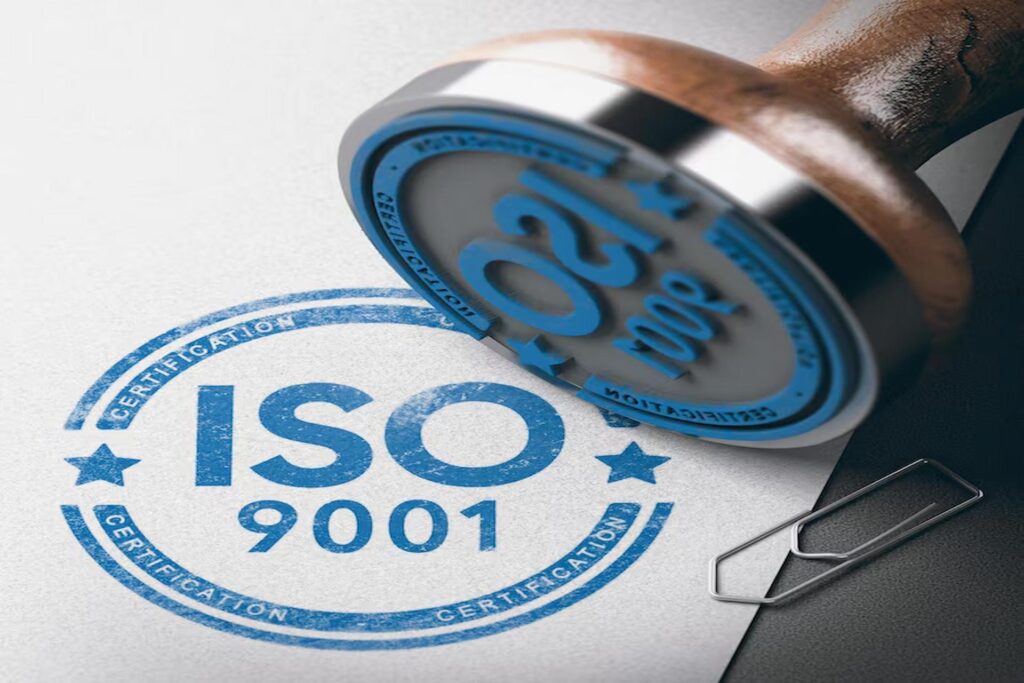In today’s competitive market, businesses are constantly looking for ways to stand out, improve performance, and build trust with customers. While many focus on marketing strategies or cutting-edge technologies, one often overlooked yet powerful tool is ISO 9001 accreditation. This globally recognised quality management standard is more than just a certificate on the wall; it is a framework that can transform the way your business operates, driving efficiency, customer satisfaction, and sustainable growth.
But why does ISO 9001 matter so much, and how can it contribute to long-term success? In this blog, we will explore what ISO 9001 is, the key benefits it delivers, and why it should be considered a strategic investment for any organisation aiming to grow and thrive.
What is ISO 9001?
ISO 9001 is an internationally accepted standard that sets out the criteria for a quality management system (QMS). It is built on principles such as customer focus, strong leadership, continual improvement, and evidence-based decision making. Achieving accreditation demonstrates that a business consistently delivers products or services that meet customer and regulatory requirements.
Importantly, ISO 9001 is not industry-specific; it can be applied to organisations of any size, from start-ups to multinational corporations. Whether you are a small business looking to build credibility, a growing company aiming to streamline processes, or a global enterprise seeking to maintain consistency across multiple sites, ISO 9001 provides a flexible framework that can adapt to your needs.
Driving Efficiency and Reducing Waste
One of the most immediate benefits of ISO 9001 accreditation is the improvement of internal processes. By implementing structured procedures and clear documentation, businesses can eliminate duplication, reduce errors, and streamline operations. This not only saves time and money but also frees up resources that can be reinvested into growth, innovation, and customer service.
These efficiency gains are particularly valuable for smaller companies that need to maximise every asset to stay competitive, but larger organisations also see measurable benefits. With greater consistency across departments and teams, businesses can reduce costly delays, improve communication, and ensure everyone is working towards the same objectives. Over time, these small but significant improvements add up, creating a leaner, more resilient organisation that is better positioned for sustainable growth.
Enhancing Customer Satisfaction
In any industry, happy customers are the key to success. ISO 9001 places strong emphasis on understanding customer needs and ensuring that services or products consistently meet expectations. Accreditation requires businesses to actively seek feedback, analyse performance, and address issues promptly.
This proactive approach builds stronger customer relationships, enhances reputation, and increases the likelihood of repeat business and referrals. Over time, this level of trust and reliability becomes a significant differentiator in crowded markets.
Opening Doors to New Opportunities
Many larger organisations, government bodies, and international partners require their suppliers to hold ISO 9001 accreditation. Without it, businesses may find themselves excluded from lucrative contracts and tenders, no matter how strong their offering might be. Accreditation signals to potential clients that your company takes quality seriously and can be trusted to deliver consistently.
By gaining ISO 9001, companies not only demonstrate their commitment to high standards but also gain access to new markets and partnerships. It effectively acts as a passport to opportunities that might otherwise remain out of reach, giving businesses a competitive edge when bidding for contracts and helping them stand out in crowded supply chains.
Encouraging a Culture of Improvement
ISO 9001 is not a one-off exercise; it is about embedding a culture of continuous improvement throughout the organisation. Regular audits and reviews encourage businesses to assess performance, set realistic goals, and adapt to changes in the market or industry. This approach ensures that the business doesn’t just meet today’s standards but stays prepared for tomorrow’s challenges.
A culture of improvement also has a positive impact on employees. Clear processes, consistent expectations, and a shared focus on quality give teams a stronger sense of purpose and direction. When staff feel engaged and supported, they are more likely to contribute ideas, embrace innovation, and take pride in their work; further strengthening the organisation’s long-term success.
Your Next Step Towards Growth
ISO 9001 accreditation should not be seen as a box-ticking exercise but as a strategic investment in the future of your business. From boosting efficiency and customer satisfaction to unlocking new contracts and embedding a culture of improvement, it provides tangible benefits that directly support growth.
In a fast-moving and competitive world, ISO 9001 is not just a quality standard; it is a secret weapon for long-term business success.


